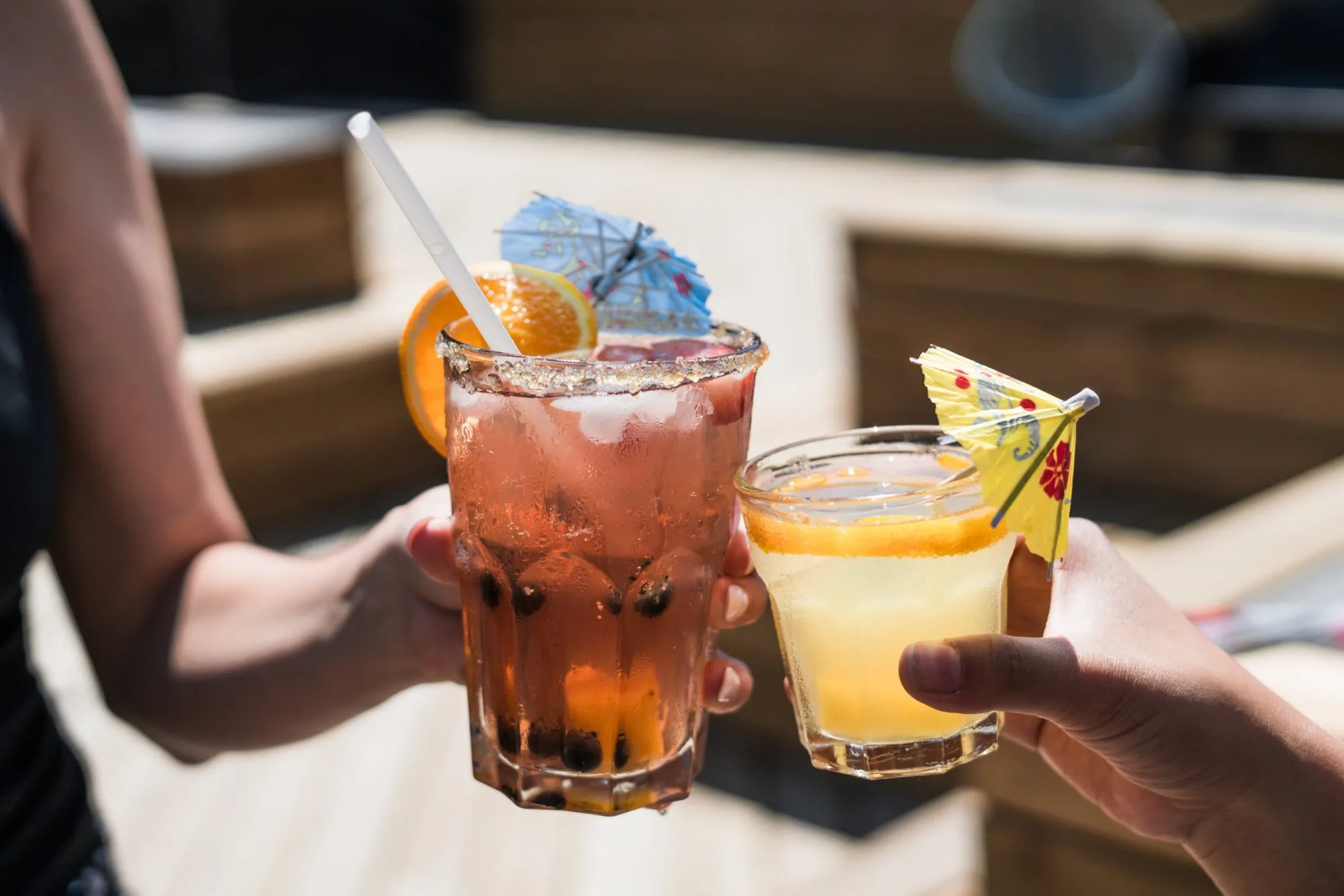Sober curiosity appears to be a pattern observed among young adults across the globe. Why? Well, a hangover doesn’t exactly serve one’s survival in today’s hustle culture. Oh, and the internet has thoroughly pushed out messages about the health risks associated with drinking. So, naturally, the impetus to quit the hard stuff is warranted. But the fact is, we’re left with alcohol-free folk who still desire a stitch in the social fabric – without a boozy concoction in hand.
Temperance, or cutting back on alcohol consumption, is nothing new. But the increasing demand for alcohol-free alternatives certainly is. We know about the positive impacts of participating in ‘Dry January’ or ‘Sober October’ – such as weight loss, improved sleep, and more energy. Only, these benefits wear off once we answer the beckoning of alcohol again (in and out of social settings).
So how can we enjoy the flavors and mingling opportunities provided by a Merlot or martini…minus the intoxication? Fortunately, the zero-proof industry offers the same flair as its alcoholic counterparts. They’re riding the sobriety wave well – and making it easier for everyone else to do the same.
Transform a month-long alcohol-free endeavor into a lifestyle
The U.S. has had an interesting and complex relationship with alcohol, to say the least. The country oscillated from once demonizing spirits to now popularizing them. Today’s culture is steeped in the practice of drinking, with celebrity-owned liquor brands and innovative cocktails paving the way.
Of course, this is a far cry from what the Prohibition era deemed acceptable. This was 1920s America’s attempt to sever all ties with alcohol manufacture and consumption. Yet people still drank (and organized crime flourished). Clearly, external pressure on either end of the drinking spectrum is unhelpful.
So, it takes ideas like ‘Dry January’ to spur us to partake in the act of “moderation” (shamelessly). However, the intention of the campaign is not to detox or to relieve those with addiction issues. Instead, it targets people who gradually tend to reach for a bit too much, too regularly.
Basically, people who take on the challenge can unveil obvious short-term benefits. This can prompt certain lifestyle adjustments. Some may see “balance” as key, but many note the positives in abstaining altogether.
A drug-equivalent of alcohol-free benefits would claim a multi-billion-dollar market
Mindful drinking may follow later if you sample sobriety now. This is because the rewards from alcohol abstinence outweigh its indulgence. First, research confirms that an alcohol-free month is an effective instrument in driving behavior change. In fact, the University of Sussex found sustained changes in 72% of participants 6 months after concluding a sober January.
Essentially, they reaped the fruit of health by consistently not drinking outside the recommended limits. They developed the attitude of mindful consumption. This means paying more attention to why and how much alcohol you’re sipping.
Another study (conducted by a liver expert at the Royal Free Hospital in London) observed the impact of a month off spirits on moderate drinkers. Astoundingly, participants lost a whopping 40% of their liver fat. What’s more, they improved their concentration, weight, cholesterol, and glucose levels. Heck, populations would spend fortunes if a medication were at the helm of such changes.
Dry January is the gateway to experimenting with sober curiosity
Dry January creates an open-ended exploration into life without alcohol. It hinges on inquisitiveness, which makes attempting it more inviting than intimidating. Primarily, this movement sheds enlightenment. For instance, some people may be unaware of the health implications of overdrinking, but they realize how much better they feel in the pursuit of sobriety or sober curiosity.
Moreover, an established ‘dry’ month offers a free pass to those living in a community where it’s unusual to not drink. It gives people the confidence, and a decent excuse, to turn down a beer (and keep strange expressions to a minimum). Needless to say, the alcohol-free life isn’t a sip-free one, with non-alcoholic beverages growing in favor.
Non-drinkers are no longer an afterthought
Fear not—you won’t surrender flavor by avoiding booze (or being limited to club soda and lime). Mocktails, dealcoholized wine, zero-proof gin (like The Duchess) and the like are taking up more residence on the menus of restaurants and bars. Luckily, many imitations on the market live up to the taste profile of the real thing.
That being said, non-alcoholic brews are also maturing into an identity outside of simply imitating alcohol. Why not tickle your palate, social life, and health simultaneously? Sure, the absence of alcohol already makes it healthier, but it can be taken a step further. Brands (like Aplós and Three Spirit US) are including functional ingredients in their products. Mushrooms (chaga, reishi, etc.), CBD, and adaptogens are thrown into the mix to replace the alcohol content. Accordingly, we can nurture our mental well-being – and tastefully at that.
In addition, sober bars (like Sans Bar in Austin or Listen Bar in NYC) are popping up left and right in the U.S. This no longer makes sober curiosity a fleeting affair. As a matter of fact, studies gathered that the provision of alcohol-free alternatives considerably reduced alcohol consumption. Essentially, people will opt for the healthier selection given its availability. In this way, we can keep our social experiences and liver intact (a win-win).
The bottom line
Alcohol-free living may have always been around – but the practice has never been more exciting. Previously, people were hesitant to make a bid for sober curiosity if it meant feeling deprived in some way. Now, we have the space to discover it freely – and appetizingly.





![women [longevity live]](https://longevitylive.com/wp-content/uploads/2020/01/photo-of-women-walking-down-the-street-1116984-100x100.jpg)










